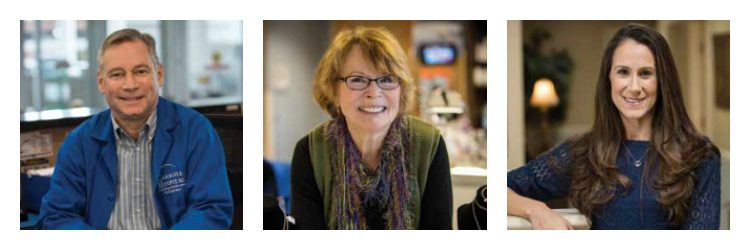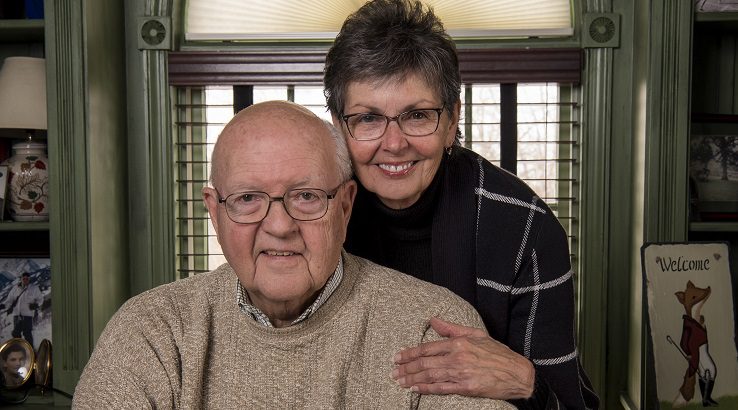Lee and Louna Primm have turned to Carroll Hospice during some of the toughest times in their lives.
Tag: help

National Eating Disorders Week: February 23 – March 1
This week is National Eating Disorders Week, a time to raise awareness of these conditions and their impact on people’s health, emotions and ability to lead fulfilling lives.

Depression After Surgery
Often, when patients are told they require surgery, they prepare by considering what needs to happen for their physical needs and recovery. They plan who will help them, they take time off from work, and they determine insurance coverage, household matters and physical needs of recovery. Most do not consider the impact the surgery could have on their mental health.

Making Home Safe for a Stroke Survivor
Stroke affects everyone differently. A stroke can leave a survivor with difficulties in their speech, cognitive skills, vision and mobility. However, with time, patience and hard work, many are able to regain some of their previous abilities and can lead fulfilling lives.

Easing Arthritis Symptoms
May is Arthritis Awareness Month, a time dedicated to increasing awareness about a condition that is one of the leading causes of disability in the country.

Self-Care During the Holidays
While the holiday season can be a joyous time, it can also be a time of heightened emotional stress and triggers for emotional challenges related to mental health, substance use and grief. Be sure to care for yourself these next few months; that may include reaching out for support and treatment.

My Time as a Junior Volunteer
During my sophomore year at Winters Mill High School, I’d heard about the opportunity to become a junior volunteer at Carroll Hospital. At first glance, I assumed that volunteer work would focus around nursing and other work typically done in the health care field. This assumption was very far off.

Volunteering: Good for You, Good for the Hospital
Volunteerism not only benefits the organization where you dedicate your time and talent, but your health as well. Studies have shown that volunteering increases mental health and function, improves physical and emotional health, and reduces stress.

Inside Carroll Hospital: CrimeCam
Carroll Hospital’s Forensic Nurse Examiner program is enhancing its efforts to identify injuries of victims of domestic violence through the use of new technology.

Medical Misconception: Advance Directives
Each month, a health care professional will weigh in on a health and wellness myth.
This month’s misconception: Advance Directives
Advance directives are an important, but often misunderstood, tool in health care. This document specifies what actions should be taken in the event that you are no longer able to make health care decisions due to illness or incapacity, and it identifies a person of your choosing to make such decisions on your behalf.
Myth: I’m healthy so I don’t need an advance directive.
Anyone age 18 or older should have an advance directive, whether they are healthy or facing a chronic illness, says palliative care nurse Laurie Luellen, R.N. “We never know what tomorrow is going to bring,” she says. “If something happens and someone is not able to make their own decisions, it makes it easier for the family to know what to do.”
Myth: An advance directive needs to be completed by a lawyer.
Two witnesses are all that is needed in order to fill out an advance directive. These witnesses must be age 18 or older, and neither can be the person you’ve chosen as your medical advocate. One important note: these witnesses don’t need to read your advance directive or know what you’ve outlined in terms of your health care decisions. They are there to simply witness that you signed the document, Luellen says.
Once the advance directive is completed, Luellen recommends giving a copy to your medical decision maker and to your local hospital, even if you’ve never been a patient there. The hospital staff will scan and save your advance directive so that it is always on file in case of an emergency.
Myth: If you have an advance directive, medical staff won’t put the full effort in to saving your life.
A lot of people think this is the case, but it is simply untrue. Hospital staff will make every effort to fulfill the wishes you have outlined in your advance directive. In addition to the advance directive identifying a medical advocate, the document also allows for individuals to outline the type of care they would want if they have a terminal condition, an end-stage condition or if he or she is in a persistent vegetative state.
